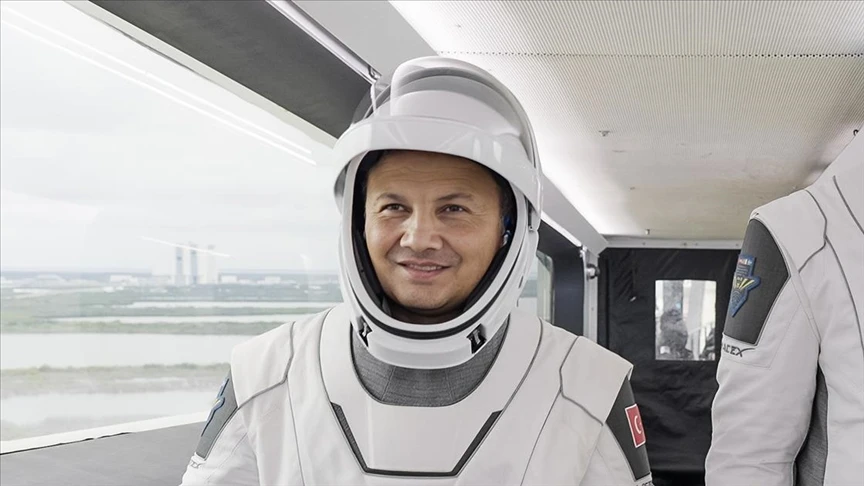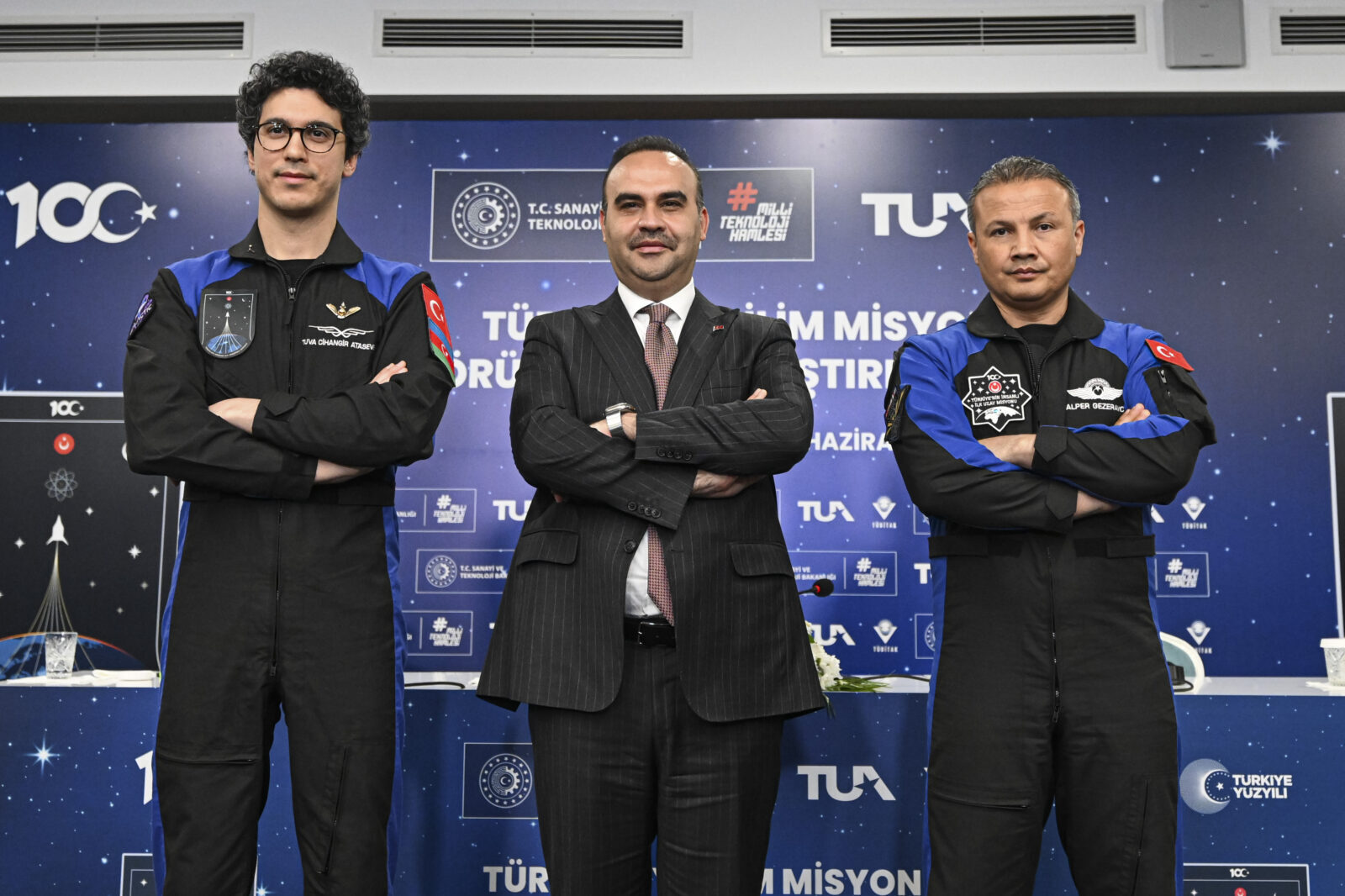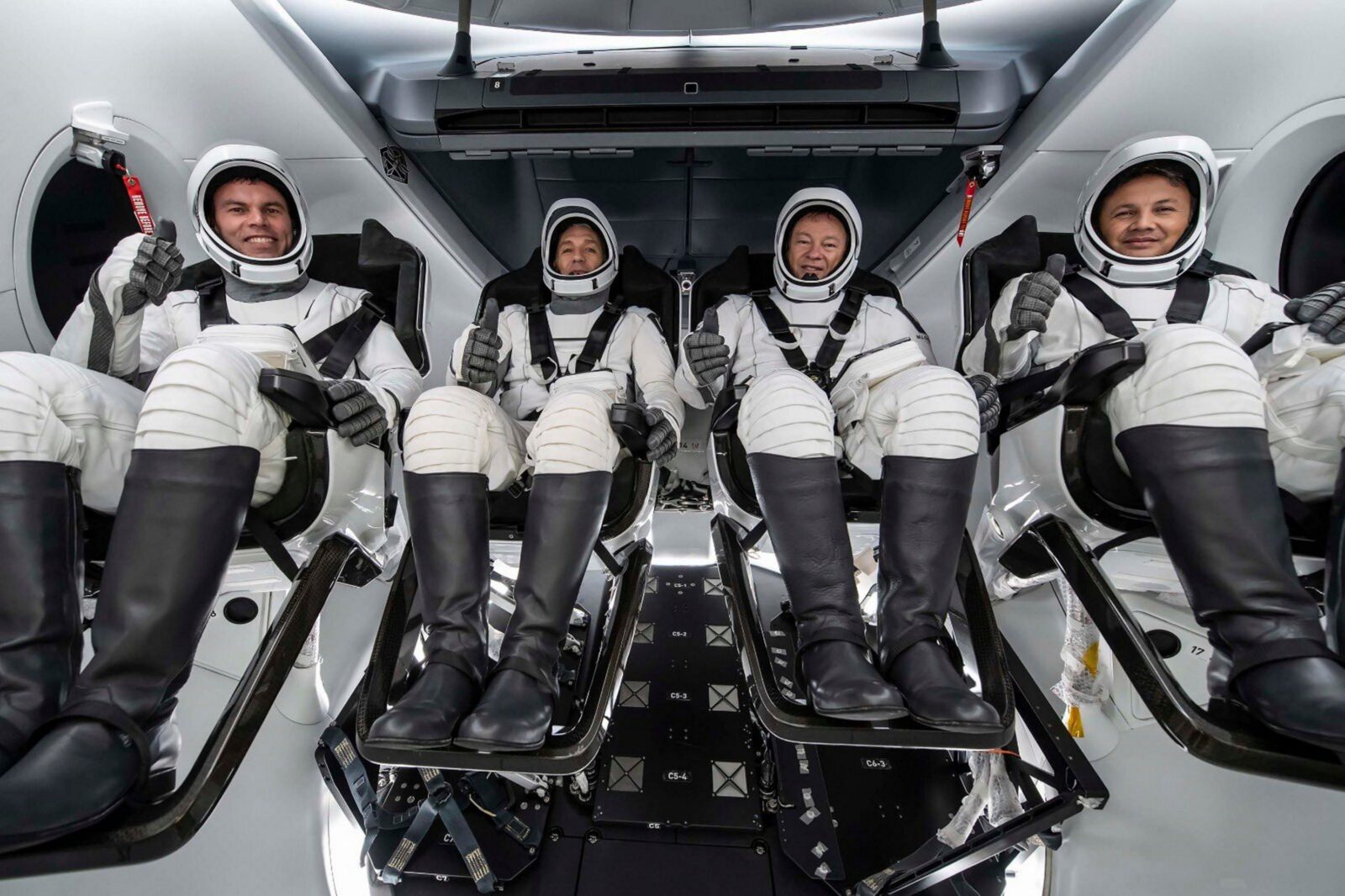Türkiye’s first astronaut Alper Gezeravci appointed to Turkish Space Command
 Türkiye's first Turkish astronaut Alper Gezeravci. (AA Photo)
Türkiye's first Turkish astronaut Alper Gezeravci. (AA Photo)
Alper Gezeravci, who recently became Türkiye’s first astronaut as part of the country’s first manned space mission, has been appointed to the Turkish Air Force’s Space Command.
The announcement was made during a press briefing held by Rear Admiral Zeki Akturk, Press and Public Relations Advisor for the Ministry of Defense.
‘Organizational efforts for Space Command continue’
In the press briefing, Akturk highlighted the growing capabilities of the Turkish Armed Forces across the land, sea, air, cyber and space domains, noting the continuous increase in deterrence and effectiveness.
“As part of the ongoing activities within our Air Force, the organizational efforts for our Space Command are continuing. Under the National Space Program, Air Pilot Alper Gezeravci, who completed Türkiye’s first manned space mission, has been appointed to the Space Command as part of the 2024 General Assignments,” he stated.

Gezeravci’s historic space mission
Gezeravci, a veteran pilot with 15 years of experience flying aircraft, including the F-16, made history for the nation, earlier this year by traveling to the International Space Station (ISS) as part of Türkiye’s inaugural human spaceflight mission.
Gezeravci spent 18 days aboard the ISS, conducting 13 scientific experiments before safely returning to Earth on February 9.
Besides his role in the Turkish Air Force, Gezeravci also serves as a member of the Board of Directors of the Turkish Space Agency (TUA).
Gezeravci’s background
Born in 1979 in Mersin’s Silifke district, Gezeravci completed his undergraduate degree in Electronics Engineering at Istanbul Air Force Academy.
He later pursued a master’s degree at the Air Force Institute of Technology at Wright-Patterson Air Force Base. Before his space mission, he served as a fighter pilot in the Turkish Air Force and worked as a captain pilot for Turkish Airlines for seven years.

Türkiye’s future space projects, goals
Türkiye’s Minister of Industry and Technology Mehmet Fatih Kacir outlined Türkiye’s ongoing projects and future plans recently.
“We will utilize the opportunities presented by space to advance our capabilities in science and technology. Our recently launched Turksat 6A satellite demonstrates our progress,” he said.
Kacir announced plans for an international spaceport by 2030, part of Türkiye’s strategy to maximize its participation in the global space economy.
Kacir also discussed the significance of Türkiye’s investments in space technology. “We are enhancing our R&D and innovation capabilities and transforming our existing competencies into economic value.
The launch of Turksat 6A and other satellite projects underline our technological achievements.”
The interest of Turkish youth in the missions of the astronauts shows the promise of the “Teknofest generation” to drive scientific and technological advancements, shaping the future with hope and ambition.



